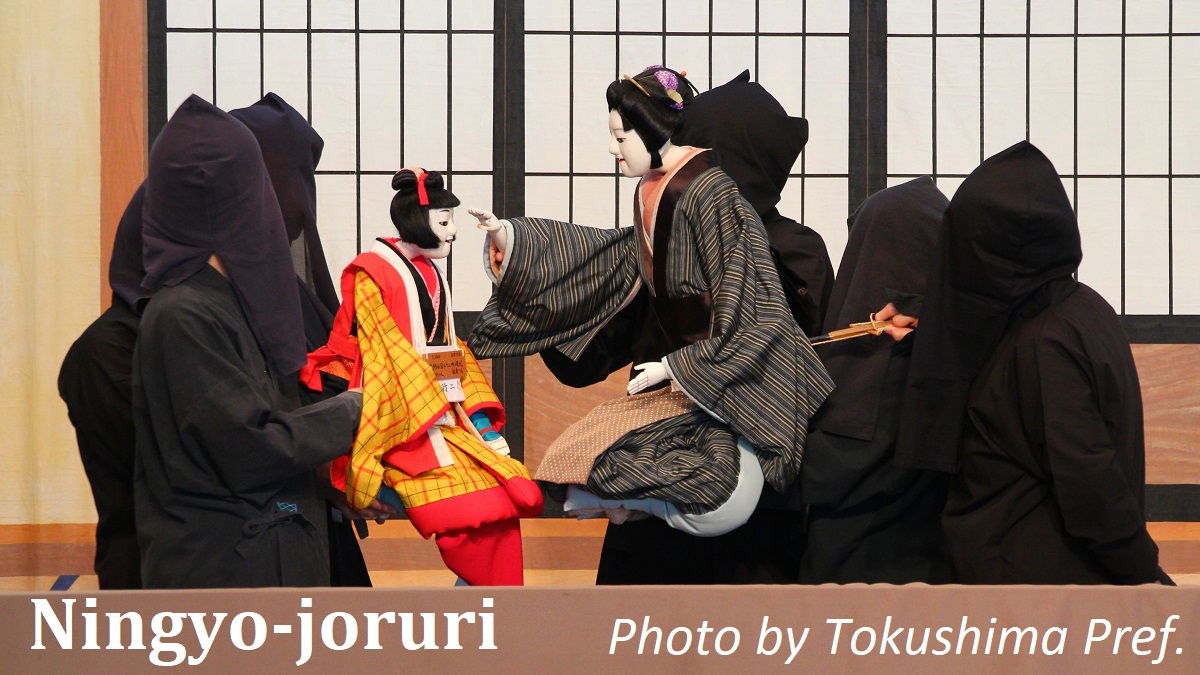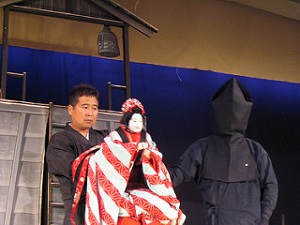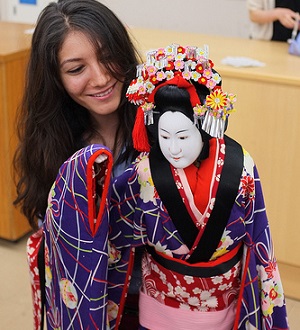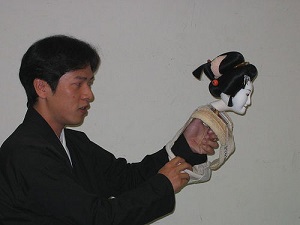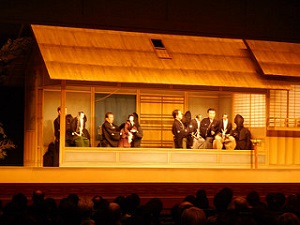Bunraku (Ningyo-joruri)
Bunraku is one of Japanese traditional puppet theaters.
Such puppet theater is often called Ningyo-joruri.
"Ningyo" means puppet, and "joruri" means the storytelling with shamisen which is one of Japanese plucked string instruments.
Bunraku is one of Ningyo-joruri shows, and it had developed in Osaka.
Therefore, it is the most popular puppet theater in Japan.
History of Bunraku
The puppet theater in Japan was born in the 17th century.
The excellent players and playwrights appeared at the time, and it got very popular.
But in the 18th to 19th century, Kabuki became the most popular theater.
On the other hand, the puppet theater fell out of favor.
In 1872, Uemura Bunrakuken established a puppet theater named "Bunraku-za" in Osaka.
Since then it regained popularity.
The name of Bunraku comes from this.
Elements of Bunraku
Performance and dramas
Commonly one performance has 1 to 3 dramas.
It takes 2 to 3 hours to play one drama, so it takes 3 to 5 hours to enjoy a performance.
The contents of the dramas are mainly historical stories and tragic love stories.
Puppet
A puppet of Bunraku has very simple structure.
A head with eloquent look, both arms and both legs are attached to the simple frame, and Kimono covers them.
A puppet is played with three puppeteers.
The lead puppeteer operates the head and the right arm, the second one operates the left arm, and the third one operates the both legs.
So they must operate own parts with synchronization.
Commonly the second and third puppeteers are cloaked head-to-toe in black costume.
Dayuu and Shamisen
In Bunraku, a narrator tells the drama with shamisen.
The narrator is called "dayuu".
Dayuu tells both the story and the words of the characters.
Shamisen accompanies the dayuu, and the player plays it when the dayuu tells a story and sings.
Stage
The stage of Bunraku is large as a puppet theater.
Because three puppeteers play one puppet, there is a depth of stage.
Other local Ningyo-joruri
Bunraku is a Ningyo-joruri developed in Osaka.
There are many local Ningyo-joruri in Japan.
The followings are some of such Ningyo-joruri.
- Sagami Ningyo-shibai : Odawara city in Kanagawa prefecture
- Bun-ya Ningyo : Sado Island in Niigata prefecture
- Anori Ningyo-shibai : Shima city in Mie prefecture
- Awaji Ningyo-joruri : Awaji Island in Hyogo prefecture
- Awa Ningyo-joruri : Tokushima city in Tokushima prefecture
- Togo Bun-ya-bushi Ningyo-joruri : Sendai city in Kagoshima prefecture
Seeing Bunraku
We can see Bunraku at National Theater of Japan in Tokyo and National Bunraku Theater in Osaka.

